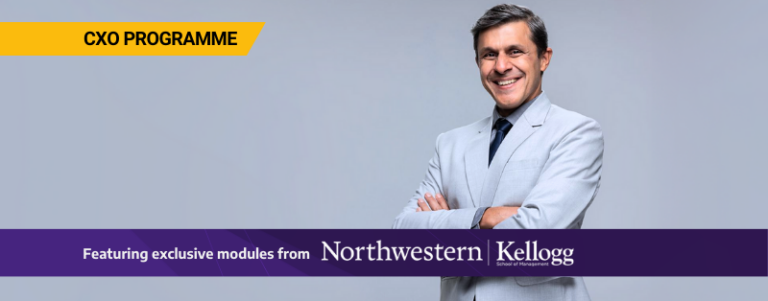Overcome These 3 Cognitive Biases To Become a Great Leader in 2023

Sophistication, adrenaline, and quantification are three forms of cognitive leadership bias that need to be overcome before an organization can be considered healthy. Professionals capable of overcoming these biases are essential to the success of any organization.
The lack of complexity in maintaining a healthy organization contributes to the issue of sophistication bias. The concept that a healthy company derives from being whole, consistent, and complete is mind-boggling to most leaders. Because they find change and movement difficult. According to best-selling author Patrick Lencioni, for an organization to thrive, its leaders must possess exceptional discipline, boldness, tenacity, and common sense.
Those in positions of authority who are always on the go are prone to adrenaline bias, which causes them to overlook pressing problems for which they may have the time but not the will to find solutions. Health cannot be reduced to a set of statistics and facts on a spreadsheet, which is why quantification bias occurs. Maintaining a healthy organization calls for both faith and gut instinct.
What Makes an Organization Healthy?
Conversely, contrary to the common idea, the health of an organization is separate from activities that focus on forming teams, staff yoga sessions, or casual Fridays. It is not in any way touchy-feely, and it involves much more than just the organization’s culture. According to what is said in Lencioni’s book The Advantage, the status of an organization’s health is the single most crucial aspect in deciding whether or not it will be successful. This is because it provides the backdrop for strategy, finance, marketing, and technology.
The organizational health of a team comprises four distinct disciplines. These include:
- Building a leadership team that is cohesive is the first discipline
- The second practice is known as creating clarity.
- The third practice is known as communicate clarity.
- Reinforcing clarity is the fourth discipline.
However, for businesses to successfully harness the potential of organizational health, they must demonstrate sufficient humility to overcome the prejudices and leadership bias that generally prevent them from fully adopting this notion.
Also Read: Learn How to Motivate People to Become Leaders: A Guide for Successful Leadership Development
Top 3 Leadership Biases One Must Know
Lencioni asserts this is because many top-level executives falsely feel they are too critical, busy, or analytical to care about such matters. What this means is that they see it as beneath them. Executives must first overcome the following three prejudices to harness organizational health.
The Sophistication Bias
Many executives fail to see the potential benefits of focusing on organizational health because they find the concept too elementary. You don’t need a high IQ or a lot of experience, only extraordinary self-control, bravery, tenacity, and good judgment. The Adrenaline Bias
Building a solid company takes time, yet too many leaders are addicted to the constant adrenaline rush of dealing with crises. This is a vital leadership bias and is commonly prevalent.
The Quantification Bias
The problem in trying to put a precise number on the advantages of a good organization is known as the quantification bias. Many leaders who place an excessive amount of stock in research need assistance to see the significance of conviction and intuition.
Also Read: What is the Purpose of Leadership, and How Can it Help Your Organisation? | Emeritus India
How Does Good Leadership Impact Organization Health
Businesses and organizations thrive when their internal systems are robust, giving them an edge over their rivals. Because so many other management teams fail to see its importance, a healthy organization may provide a company with a significant edge in the marketplace.
management teams fail to see its importance, a healthy organization may provide a company with a significant edge in the marketplace.
Organizational health and intelligence go hand in hand, which is why both are important to companies and organizations. When a company’s health and understanding are both strong, the result is increased prosperity.
Maintaining an advantage over rivals and achieving the degree of success one has set for one’s company or organization requires a strong team that has been able to overcome leadership bias. Leadership isn’t providing a good example for the rest of the staff, and they’re not making the best business judgments possible if they aren’t united as a group.
Accelerate Your Career in Leadership
If leaders want to bring about change in their companies, they must make choices with one thing in particular in mind: the consequences of those actions. They must seek out chances for influence regardless of whether or not it fulfills the preconceptions that govern their way of thinking. They will miss out on some of the most dependable and straightforward opportunities for organizational transformation if they are set on finding solutions that seem complex, can be rapidly implemented, or are inherently easy to measure.
If you are aspiring to become a strong and grounded leader, check out the latest leadership courses on Emeritus. Learn from top universities in India and lead world-class organizations.

































